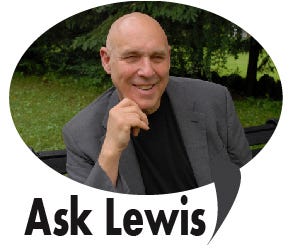The Best Definition of What is Happiness - An Introduction
Tips, tools, and life hacks on the road to a purposeful and mindful life
“These newsletters serve a demographic of highly intelligent readers, and deep thinkers with a passion for ideas, critical thinking, and unknown possibilities. Wu wei and the Law of Attraction are among those ideas. Readers of my posts are usually tired of being patronized elsewhere by fact-less, opinionated know-nothings, who complain about everything they don’t like, but lack a willingness to think about, find resources, or create life hacks, shortcuts, and solutions to fix what they don’t like.”
——————————————————————————————————————
On a personal note: Please excuse grammatical errors, typos, repetition, and any general nonsense, and such in this post. I am getting a bit older now, and I have about 20,000 pages of information that must get published before I leave the mortal coil. I simply write and publish more than my humble editors are able to correct. If you find enough errors you are welcome to contact me about being an editor of my work.
Thanks for sharing this newsletter with your friends and associates.
Join us at our free self-improvement for beginners Group ad Forum for free tips, tools, and strategies to become a happier person
https://www.facebook.com/groups/455029215769173
———————————————————
Q. Lewis, how can I become a happier person?
A. It has to do, in part, with intention.
The word “happiness” refers to a feeling of pleasure, joy, or contentment. Usually, the term happiness is used in the context of mental or emotional states, It is also used in the context of life satisfaction, subjective well-being, flourishing, and well-being.
While we as humans have developed significant physical adaptations for our survival and success, there are some crucial emotional adaptations we often overlook.
While we often point to the human brain, and the resulting human mind, as our most significant adaptation, we actually have astonishing adaptive features that are often overlooked: our emotions, especially the emotion of happiness.
Our emotions are vital tools in our arsenal of adaptions, ones that we rarely consider or appreciate as a mechanism for surviving and prospering. Some of us might even label emotions as negative or feel they do nothing but get in our way. From a scientist’s perspective, our emotions are essential. What we don’t often realize is that creating and living in a state of happiness can come about through a methodic, purposeful, and intelligent process. Achieving this state of happiness is what this course is about.
In politics, happiness as a guiding ideal is expressed in the United States Declaration of Independence of 1776, written by Thomas Jefferson, as the universal right to "the pursuit of happiness." This seems to suggest a subjective interpretation but one that goes beyond emotions alone. It has to be kept in mind that the word happiness meant "prosperity, thriving, wellbeing" in the 18th century and not the same thing as it does today. In fact, happiness.
It would seem that there are many different contributors to adult wellbeing. Happiness reflects, in part, the presence of obvious constraints, and that fairness, autonomy, community, and engagement are key aspects of happiness and wellbeing throughout the life course. Although these factors play a role in happiness, they do not all need to act simultaneously to help one achieve an increase in happiness.
Libertarian think tank Cato Institute claims that economic freedom correlates strongly with happiness preferably within the context of a western mixed economy, with a free press and a democracy. According to certain standards, East European countries when ruled by Communist parties were less happy than Western ones, even less happy than other equally poor countries.
Many in the field of behavioral economics (tied to game theory) support the contention that in more democratic countries life satisfaction is strongly and positively related to the social democratic model of a generous social safety net, pro-worker labor market regulations, and strong labor unions. Similarly, there is evidence that public policies which reduce poverty and support a strong middle class, such as a higher minimum wage, strongly affect average levels of well-being.
We cannot be happy if we expect to live all the time at the highest peak of intensity. Happiness is not a matter of intensity but of balance and order and rhythm and harmony.
William Feather
The Takeaway
Of course, when the concept of free will and intention come into play here it can be argued It has been argued that people constantly make choices that decrease their short-term happiness and comfort because they have also sought outcomes that are of greater importance to them.
The idea, it would seem, is to act as if you have free will and make choices that have a purpose, are meaningful, and bring you happiness.
———————————————————
Author: Lewis Harrison is a practical philosopher, an Independent Scholar, and a Results-Oriented Success Coach. He has a passion for knowledge, personal development, applied game theory, self-improvement, creativity, innovation, problem-solving, and story-telling. He is a practitioner of Transmoderm Zen. Lewis Harrison is also a speaker, best-selling author, and the creator of the Best Course to Happiness…at Last.
—————————————————
This newsletter is an excerpt from the Best Course to Happiness, at Last
Click on the Smiley face just below to learn more about the course …









